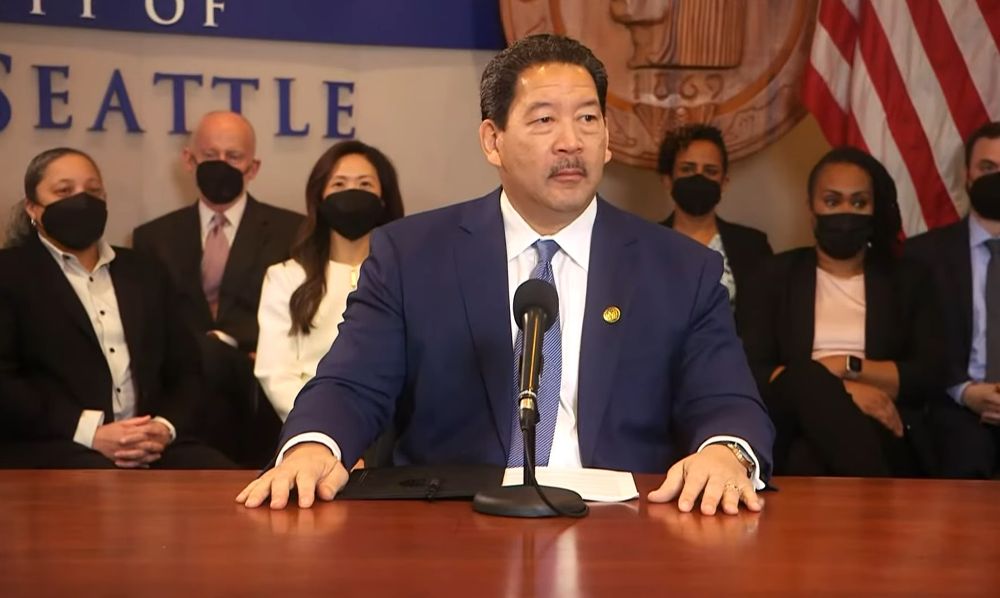One of the ways to assess a State of the City address is to note the dogs that didn’t bark, the omissions from the long list of goals and programs.
Here are some I noted:
- Affordability. There was a brief mention of affordable housing, but not tough steps such as lowering taxes, reducing regulations, tamping down home prices, rent control.
- Neighborhoods. The Mayor has named an admired public figure, lawyer Greg Wong, to head and revitalize Seattle neighborhoods and a moribund department. No specifics. Urban Villages approach still valid?
- Arts and Culture. A battered sector thanks to the pandemic and funding problems; who are his key leaders? Library’s new leader?
- Metro buses. In deep trouble, and regional approaches generally (except a shout-out to regional homelessness authority).
- Zoning. Where Harrell ran against densifying single-family zoning, no mention.
- Parks. Reopening them, seeking a new director were mentioned.
- Downtown revival. Mostly about crime and homelessness and equity, but no exciting new attractions, aside from waterfront park.
Discover more from Post Alley
Subscribe to get the latest posts sent to your email.

100% agree that what isn’t said is significant. That holds true whenever government officials issue pronouncements for public consumption.
If I were listing omitted-but-relevant-topics I’d put this one up top:
Working from Home — If Seattle office tenants will not be pulling hundreds of thousands of people from outlying areas into downtown each morning (and then releasing them to make their ways home each evening), what should downtown’s new mission statement be and what policies do we need to achieve it?
That is Seattle government’s elephant in the living room that nobody in city hall wants to acknowledge.
A good comment. A related topic is the drop in city hall revenues as downtown activity declines. Harrell will need a lot of new money, maybe from the feds, to live up to his promises in the campaign and state of the city speech.
“IF” work from home goes that way. Some people want to burn officials in effigy because they aren’t acting on these speculations, but it’s early. We’re still in the middle of a public health emergency that dictates unusual measures, and in a politically overheated atmosphere that means any pronouncements from employers have to be taken with a grain of salt. Grand plans at this point would be sand castles on the beach.
Nobody is suggesting adoption of new ‘grand plans.’
What is needed though is for the authorities to begin acting competently. The leaders in the other West Coast tech hub are gathering and considering office occupancy information, and commuter behavior changes. In SF they are getting to a position where they can begin discussing appropriate new policies: https://bart.legistar.com/View.ashx?M=F&ID=10508492&GUID=966CB600-04E3-432D-B655-0C2A8F47E10E
Not in Seattle’s city hall though. Underused offices and buses is a verboten topic so Harrell and the city council can not act in residents’ best interests.
On housing cost … maybe Harrell is the rare Seattle politician who isn’t going to take advantage of it, as an excuse to take actions that please some constituency very much but do nothing about cost of housing.
The only real remedy is so deeply unpopular that I doubt any politician could even refer to it indirectly: bring the rate of growth down. We can’t wave any regulatory wands, either on the production side or by controlling market prices, that will reliably break the upward trend of housing costs in an overheated growth scenario; conversely we could support growth without any of that, if we could keep it within 1% annual, perhaps simply by not encouraging it (UW, Expedia, etc.)
Plan now for what it would take – building code, zone changes – to convert Office buildings into living units